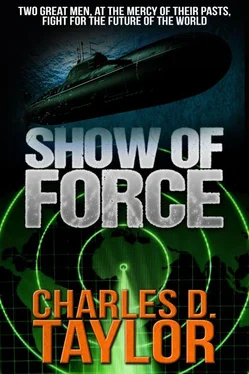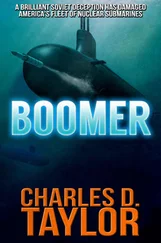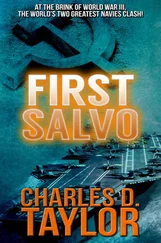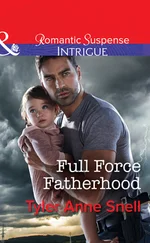Tasha adapted readily to the new social life, much more so than he, for he had never known anything but the military since he had gone to live with Gorenko's family. There were parties that she especially loved, for her life in Moscow had been very private. It was at one of those that she had met Maria Charles. He remembered the look on Tasha's face when he had come over to meet the couple she was talking with. She had been so afraid he would be upset because the man was in the American Navy. But he had told her afterward that he had been instructed to meet some of them. And he had liked the other man. David Charles was almost as old as he, and of an equivalent rank. They found that they had much in common. Tasha and Maria had arranged those early meetings in the park. The two boys had a wonderful time, adapting to their differences as only children can, teasing with each other's language until they had invented a middle language of their own.
He had been told to learn more English and, with David's Russian lacking, Alex was able to practice on his new friend. The sea had become their mutual language, and it was while they searched each others' minds that they also became closer friends. He remembered the day they had decided to have lunch together. He was to meet David outside of the American Embassy. He remembered Tasha teasing him about Gorenko's reaction if the older man knew he had extended his study of English to dining with American naval officers. He had told Tasha that Gorenko would know anyway.
He had jumped into a cab on Bayswater and said, "American Embassy, please," in his accented voice.
The driver, realizing the man he had just picked up in front of the walled building was probably Russian, turned back through the window of his cab, eyes wide. "Did you say the American Embassy, Guv?"
"That is correct," he had replied with as straight a face as possible. "At Grosvenor Square." And then he added, "Do you know where that is?" realizing the driver's surprise at a Russian going to the American Embassy. He had considered telling the driver he was going to ask for asylum, but knew that would just start something Gorenko would never have understood. No sense of humor. The driver had pulled right up to the front of the Grosvenor House, its glass front so rich and powerful, and deposited him with a curious look. David had been waiting outside, and came over to shake his hand as Alex dug for change to pay for the cab. The driver, openmouthed, had not even checked to see if there was a tip. He had probably driven off dreaming of this wild story to tell his missus about the Russians and Americans when he arrived home that night. Those days had been wonderful. They had unearthed his sense of humor.
A radio speaker on the other side of the bridge briefly interrupted Alex's reverie, but it was quickly silenced by a wave of Svedrov's hand, and he forced his mind back again to those days. He remembered best that Saturday the four of them and the boys had gone to Greenwich to visit the Royal Naval Museum and the Observatory.
They had met at Marble Arch and decided right then that they had a talent for picking superb days. They walked over to a nearby Bakerloo underground station and took one of the lovely old trains that were left over from before the war, the ones with the wooden cars and velveteen seats with armrests. It wasn't like the underground in Moscow that was so clean and efficient and modern, he remembered, but it was a symbol of the British love of tradition.
They got off at Charing Cross, walking the short distance over to the Embankment, and then down the steep steps, worn by time and the feet of people dead for centuries. One of the riverboats was just leaving for Greenwich and that left them near the head of the line for the next one. When it pulled up to the pier, they were able to easily find a seat in its bow. They had grandstand seats for the Thames riverfront as the boat slid under the Waterloo bridge heading downstream.
Adults want to point out all the sites to children on such a trip, while children want to watch the sea gulls and the tugs and the variety of garbage afloat in the river. So while each family used a map to dictate history to their child in their own language, each boy pointed out for the other the gulls, and the garbage, and the tugs sliding past.
Wistfully, Alex thought in his semi-dream how lovely it would be to take Tasha back to London, even to have David and Maria 'join them. The boys were so much older now, they'd probably want to go off by themselves rather than tag along with their parents. The dream persisted as they passed HMS Discovery on their left, resting calmly at her last mooring. There was always one more bridge to pass under, black with the soot of times gone by, once witness to armadas of sailing ships heading down to the Channel or returning from faraway ports of call.
And then, they were passing HMS Belfast on one side and the Tower of London on the other. The old cruiser had seen action in the second World War, but he and David both agreed that she seemed so ancient now compared to the ships they had both served on. And on the opposite side from the old ship, they remembered their visit to the Tower, once a seat of government, home of powerful kings, a forbidding prison, the end of life for the two young princes, and guardian of the crown jewels. AH four of them embraced London's history, seeing the great places that had been serving man for more than six hundred years.
They passed under the Tower Bridge, the most beautiful in London, they thought, and then it was only a short distance to the landing at Greenwich, with Christopher Wren's low marble buildings of the Naval College built right to the edge of the bank. With the tide out, they climbed the steep stairs to the land.
Cutty Sark, resting now on her permanent mooring far from the water, caught the boys' attention for a while. But it was the Gypsy Moth that fascinated Alex and David. They both marveled at the skill and daring of that one old man, willing to face unknown dangers in vast oceans to sail around the world single-handed.
The women made sure they were on the lawns behind the Maritime Museum to watch the red ball descend at the observatory at thirteen hundred. "Time has begun," laughed Maria Charles, and they joked about how time had managed to begin every day for centuries in that very spot. They lay on the grass and watched the boys play for a while. No need to drag them into the museum.
The flowers in the gardens surrounding the museum were magnificent at that time of year, as if it were spring. "What do these gardens remind you of?" asked Tasha of the three others. "I'm just being curious." She looked to the other woman. "You first."
"It takes me back to spring, back in the Midwest," answered Maria, "when the fields are growing, just tall enough to start waving in the wind. That's when my mother's flowers looked like these. I don't think I'll ever forget that, even if I never get back home."
"When I was in Washington, my favorite part of the year was the cherry-blossom season, and I even used to walk along the Potomac by myself." David added, smiling at his wife, "Maria will tell you I'm not much of a fan of the cold, and when those blossoms came out, I knew winter was gone."
"That's like Leningrad," remarked Tasha. "Can you imagine that's what I remember more than my own home? In spring, when the apple blossoms came out in Leningrad, that's what I loved most. The ice was off the canals and the boats were on the Neva again, and we could put away those heavy clothes for another season. It was glorious."
They turned to Alex, stretched out on the grass, his eyes closed, one hand resting under his head, the other absentmindedly pulling sprigs of grass. "There's not much to charm you in Moscow," he said. "But at my father's dacha outside the city, I remember spring, too. After those cold winds whipping down from the steppes, there was spring, with leaves in the trees, and birds singing." He paused. "I guess the reason I love it so is because we hardly ever get out there. My father loves it too, but he spends so much of life working that he can never enjoy it as he should. When we do go, we walk in the woods. He knows the flowers and the trees and the birds, and he taught me. That's one part of him that only I know. He doesn't let anyone else inside of him. It's about the only time we're ever by ourselves when we aren't working or talking about the Navy. I'll never forget him that way."
Читать дальше












